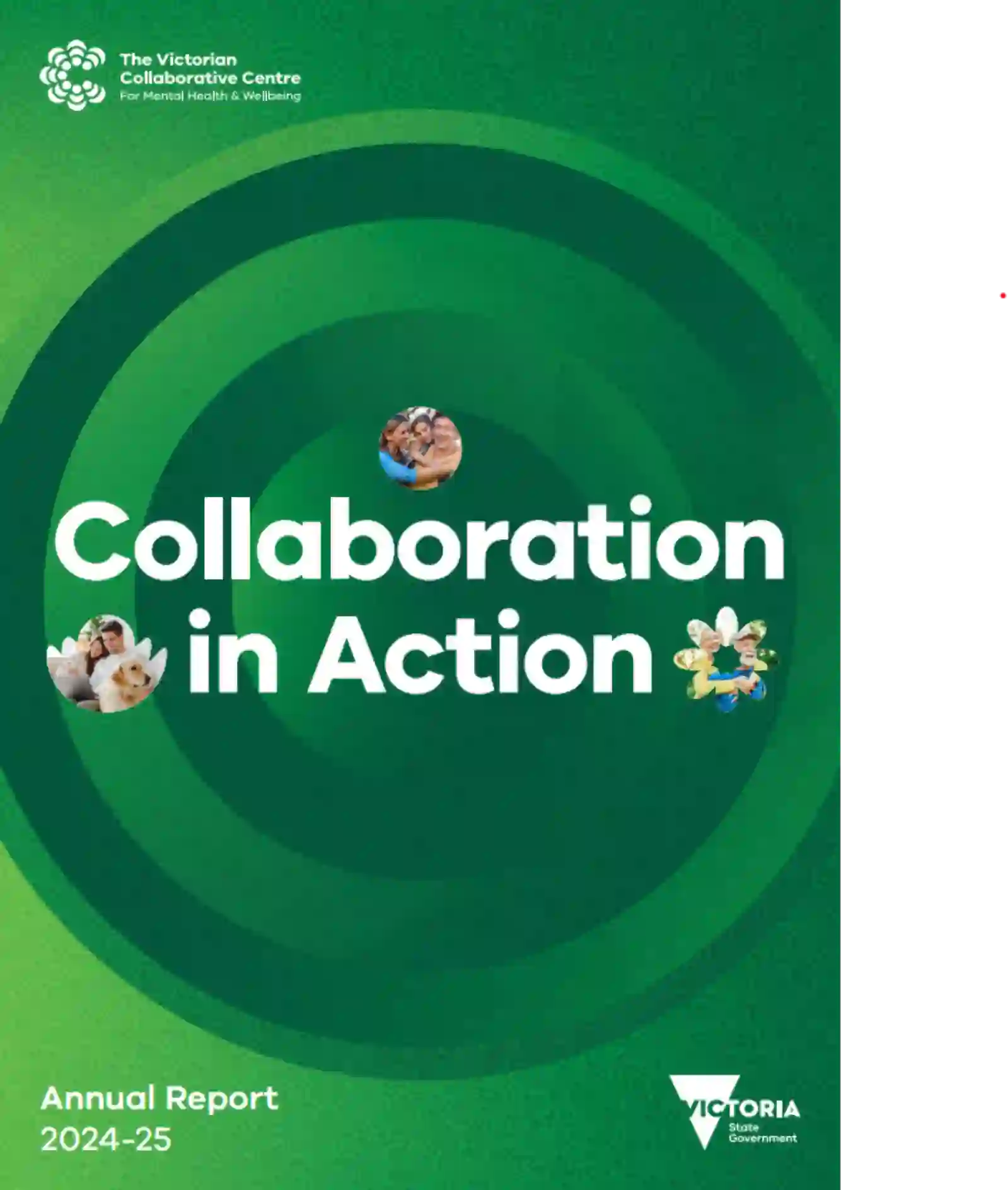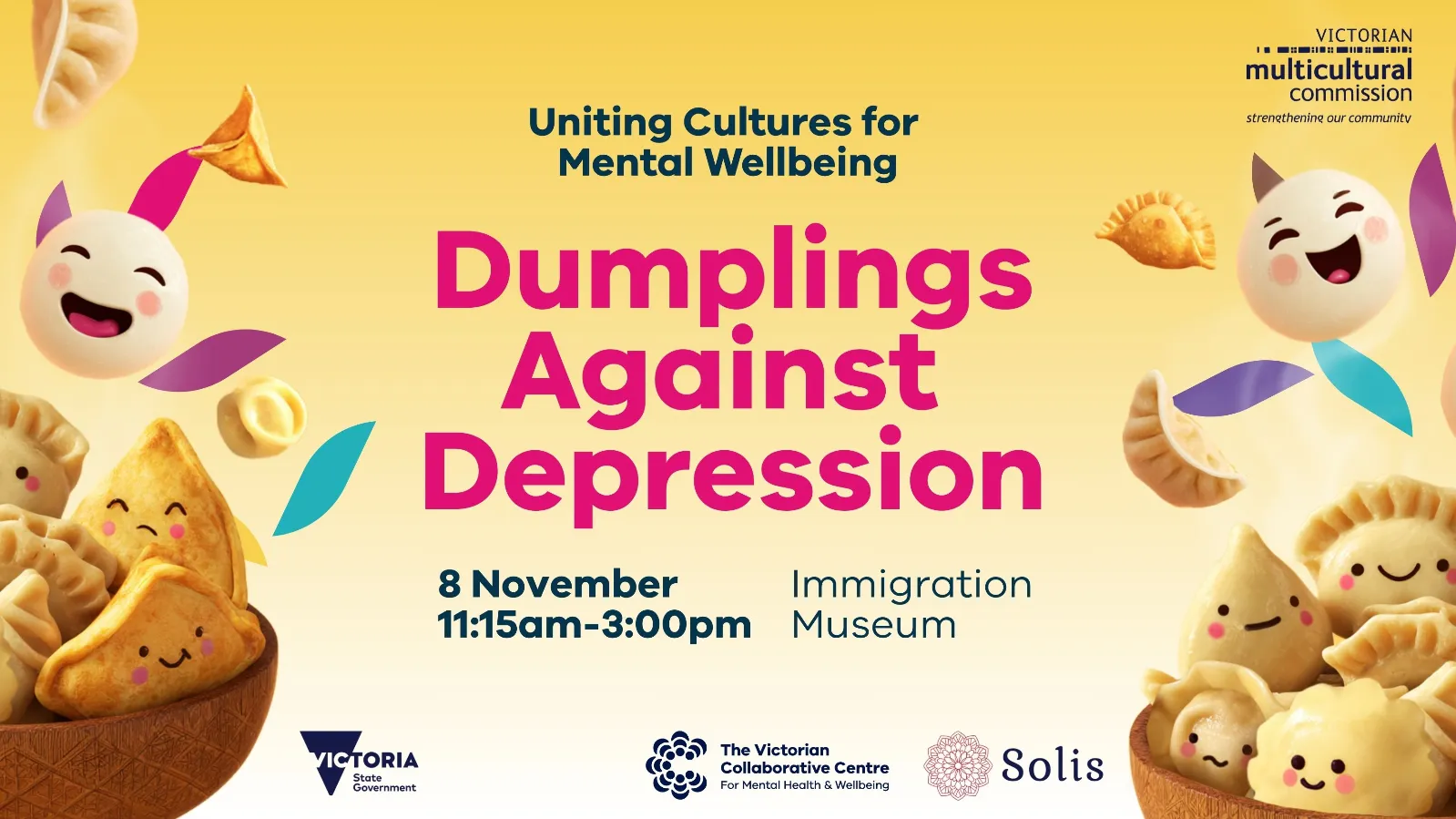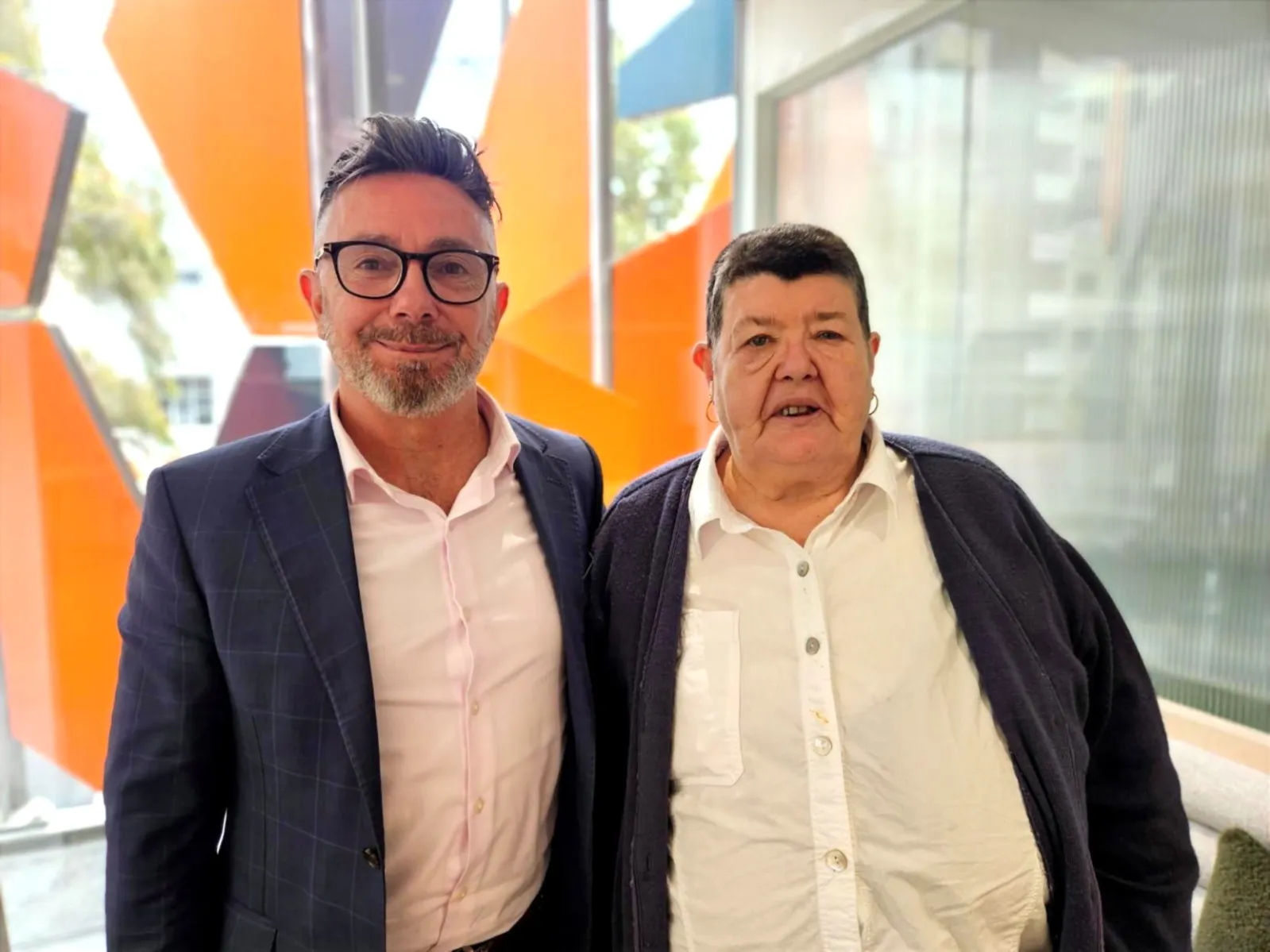We connect Lived and  Living Experience leadership, innovative service delivery
Living Experience leadership, innovative service delivery  and cutting-edge research to drive ground-breaking change to
and cutting-edge research to drive ground-breaking change to  Victoria’s mental health and wellbeing system
Victoria’s mental health and wellbeing system
About the Collaborative Centre
The Collaborative Centre was established to lead genuine and lasting transformation across the mental health and wellbeing system.
News & Events
News & Events News & Events News & Events News & Events News & Events News & Events News & Events News & Events News & Events News & Events News & Events News & Events News & Events News & Events News & Events News & Events News & Events News & Events News & Events News & Events News & Events
What is the Development Needs Analysis (DNA)
With the Department of Health’s support, the Victorian Collaborative Centre for Mental Health and Wellbeing (VCCMHW) is undertaking a development needs analysis of the whole Victorian mental health and wellbeing workforce. This analysis will directly inform the development of a targeted, three-year workforce development strategy for both the Collaborative Centre and the department’s Mental Health and AOD Workforce Development team.

Director, Workforce Development role
We’re continuing to build a strong, connected approach to workforce development across Victoria’s mental health and wellbeing system.
This work is supported through the Director, Workforce Development role, which we are currently recruiting to as a job-share position, providing leadership across our workforce, education and development function within the Collaborative Centre.

The Summer Learning Series
The Summer Learning Series is your opportunity to help shape the future of Victoria’s mental health and wellbeing workforce — while gaining practical insights, learning alongside peers, and contributing your experience in a way that respects your time.

New report launch: Promising practices in gender-responsive mental health care
This report explores mental health reform in Victoria, offering a practical illustration of what gender-responsive mental health care looks like and highlighting approaches that can inform system-wide reform. It is an important resource for anyone working to improve mental health outcomes with a focus on gender equity.

Annual Report 2024/2025
The 2024–25 Annual Report highlights a year of change and growth as the Collaborative Centre strengthened foundations for workforce capability, translational research and Lived and Living Experience leadership.

In their own words - Leanne Burn
A reflective profile of a Lived and Living Experience leader working to embed lived experience at the heart of system-wide mental health and wellbeing reform.

Changing lives
This is a statewide, family carer–led research report documenting the characteristics, roles, practices, supports and priorities of the Family Carer Lived Experience workforce in the Mental Health and Wellbeing Connect centres.

Meet our new Senior Workforce Development Facilitator, Consumer Perspective.
We're delighted to welcome Erin Hill to the Collaborative Centre as our new Senior Workforce Development Facilitator, Consumer Perspective.

Meet our new Senior Workforce Development Facilitator, Lived Experience -Family/Carer Perspective
We're delighted to welcome Karen McKnight to the Collaborative Centre as our new Senior Workforce Development Facilitator, Lived Experience -Family/Carer Perspective

Spotlight on multicultural mental health: Sharing dumplings, sharing ideas
How can Victoria’s mental health system become more culturally responsive, psychologically safe and inclusive of the diverse communities it serves?
Through our shared love of food, connection and conversation is certainly one way!

Meet our new Lived Experience Sector Partnerships Officer
We're delighted to welcome Melissa Mendoza to the Collaborative Centre as our new Lived Experience Sector Partnerships Officer

Meet our new Manager, Lived Experience Sector Partnerships.
We're delighted to welcome Leanne Burn to the Collaborative Centre as our new Manager, Lived Experience Sector Partnerships.

Inside the Lived and Living Experience Governance Committee
Dr Robyn Callaghan and Sam Hayward lead the Lived and Living Experience Governance Committee, guiding reform through shared leadership and humanity.

The Power and Privilege of Psychiatric Leadership
Podcast - Leadership in mental health isn’t just about expertise — it’s about how power and privilege shape the spaces we share.
Calendar of events
View all events
Current Projects
Current Projects Current Projects Current Projects Current Projects Current Projects Current Projects Current Projects Current Projects Current Projects Current Projects Current Projects Current Projects Current Projects Current Projects Current Projects Current Projects Current Projects Current Projects Current Projects Current Projects Current ProjectsThe Collaborative Centre funds a range of translational research projects.
Latest Research
Community-based models of care facilitating the recovery of people living with persistent and complex mental health needs: a systematic review and narrative synthesis
This systematic review examined community-based mental health models supporting recovery for people with persistent, complex mental health needs. Analysing 59 studies across eight model types, researchers found promising evidence for intensive case management and integrated community treatment, but noted limited focus on personal recovery outcomes and insufficient consumer involvement in research design.
Victorian Suicide Prevention and Response Strategy 2024-2034
The Victorian suicide prevention and response strategy 2024-2034 outlines a 10-year whole-of-government approach to reduce suicide across all Victorian communities. Developed through extensive co-design with people with lived experience, it focuses on six priority areas: connected systems, strengthened supports, capable workforces, community action, government collaboration, and evidence-based delivery.
Mental Health and Wellbeing Act
The Mental Health and Wellbeing Act 2022 (Vic) is the primary piece of legislation with respect to mental health in Victoria and is the backbone of the regulatory framework for mental health. It is intended to ensure that Victorians obtain the highest standard of mental health and wellbeing and to reform the mental health system in accordance with the vision and recommendations of the 2021 Royal Commission into Victoria's Mental Health System.
Elimination of restrictive practices from acute adult mental health care services: A qualitative evidence synthesis of the lived experience literature.
This qualitative evidence synthesis explores the perceptions and experiences of mental health service users and practitioners regarding the use and proposed elimination of restrictive practices, such as seclusion and physical/mechanical restraint, in acute adult mental health care services.
The appropriateness of DUNDRUM-3 and DUNDRUM-4 for Maori in forensic mental health services in New Zealand: participatory action research
The Auckland Regional Forensic Psychiatry Services (ARFPS) in New Zealand has introduced structured clinical judgment instruments developed in Ireland (DUNDRUM-3 and DUNDRUM-4) to assist staff decision-making regarding service users’ clinical pathways. In New Zealand, Māori (the indigenous people) constitute 43% of the in-patient forensic mental health population. The aim of this study was to determine the face validity of the measures for Māori.



